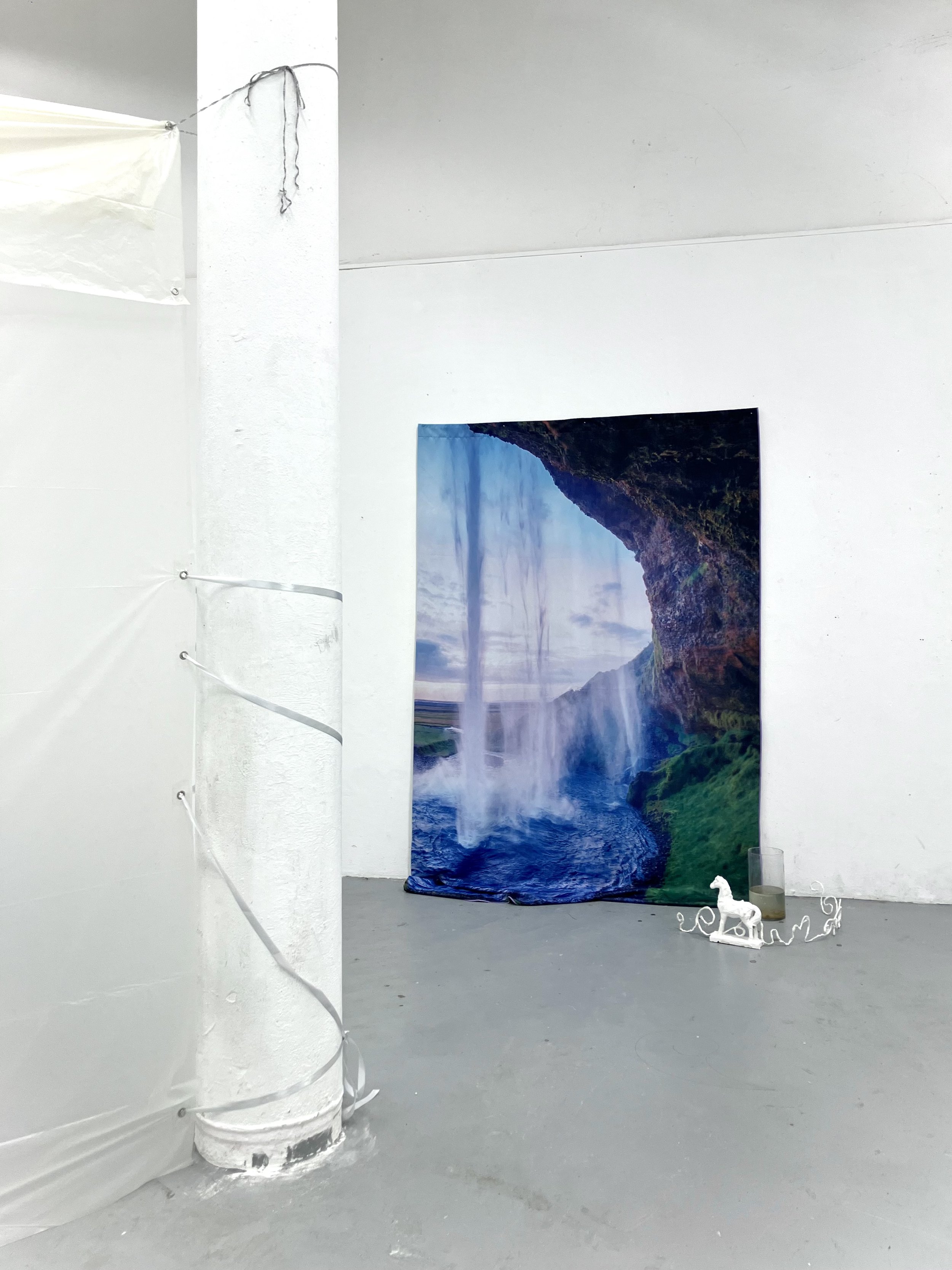
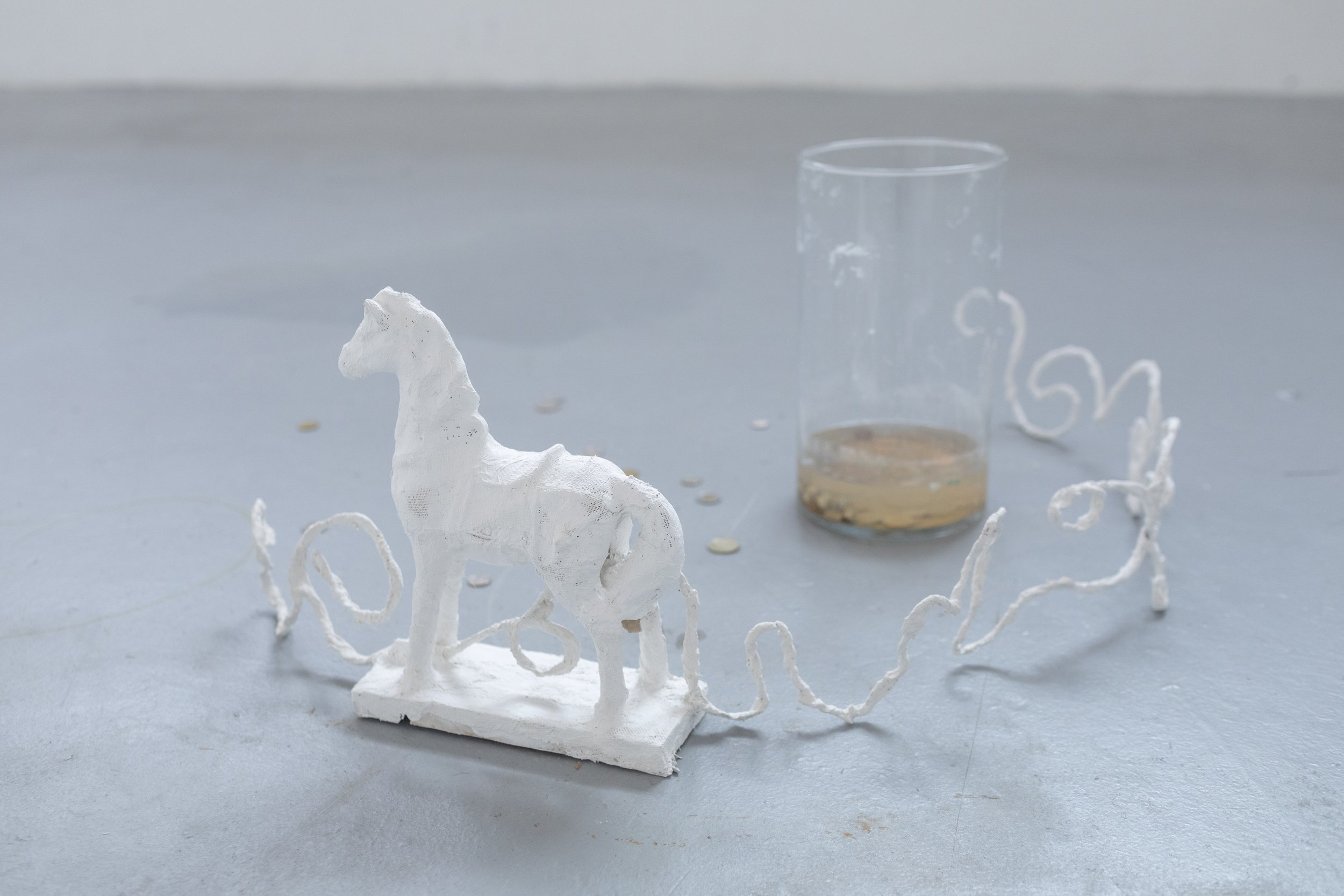
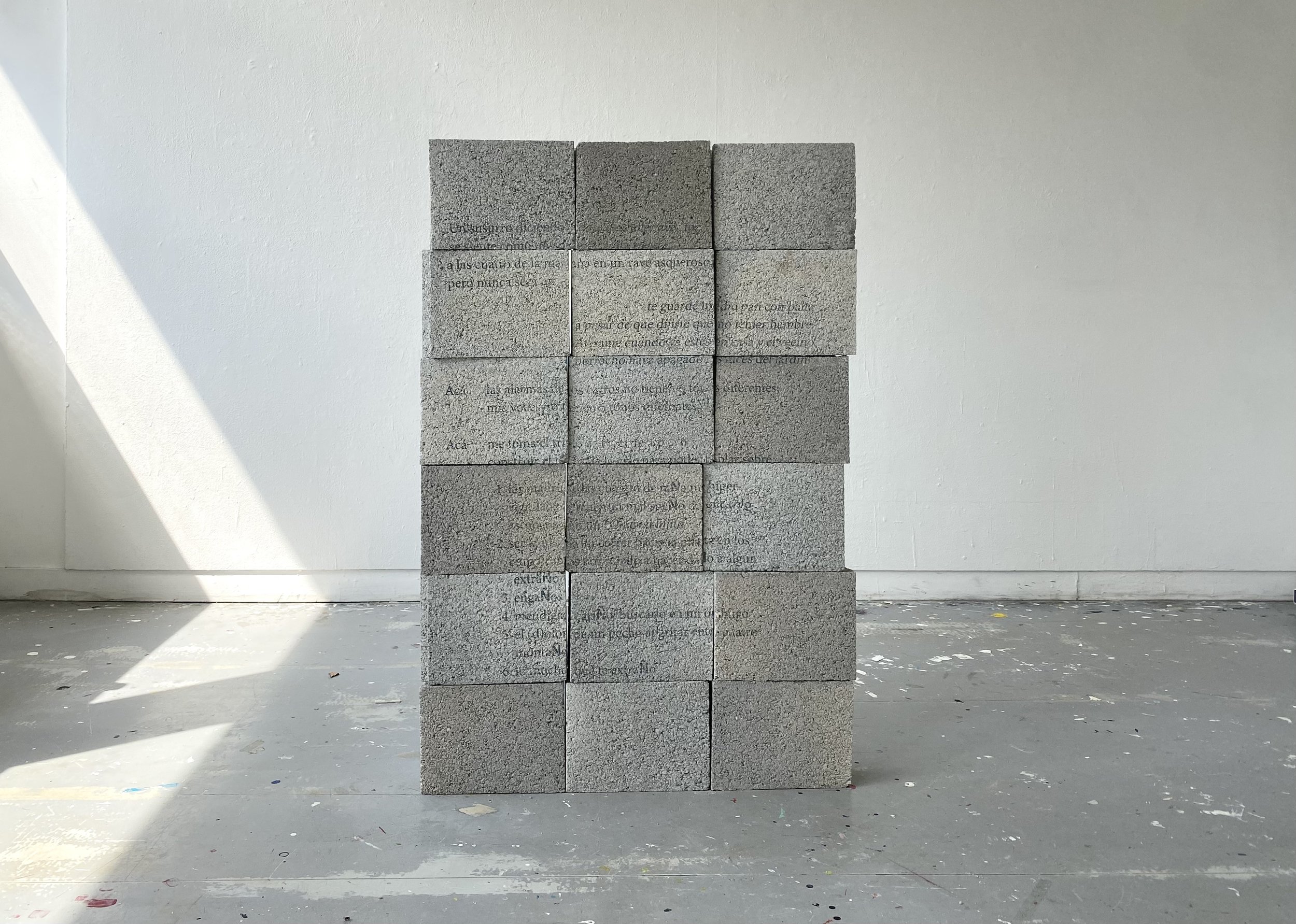
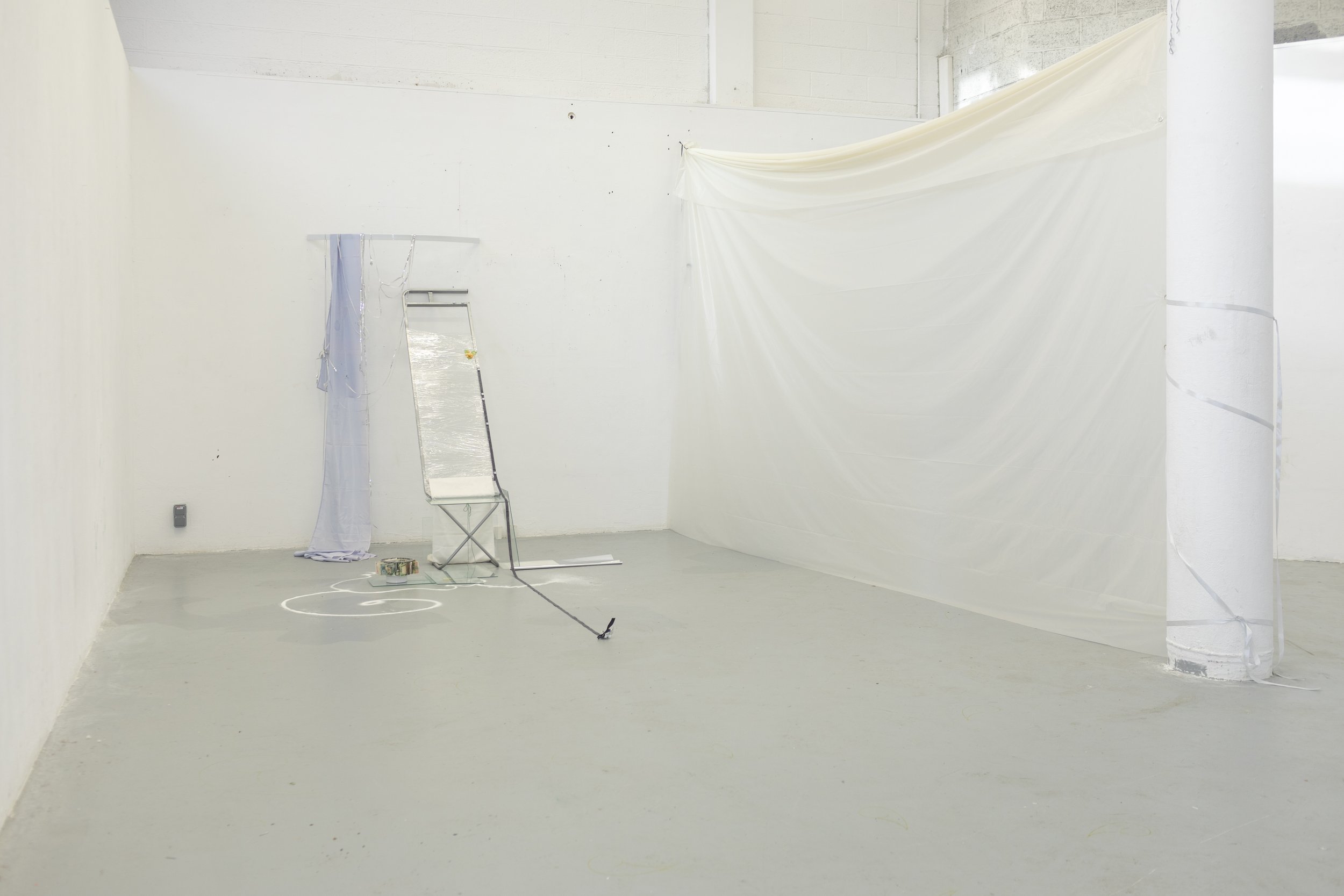

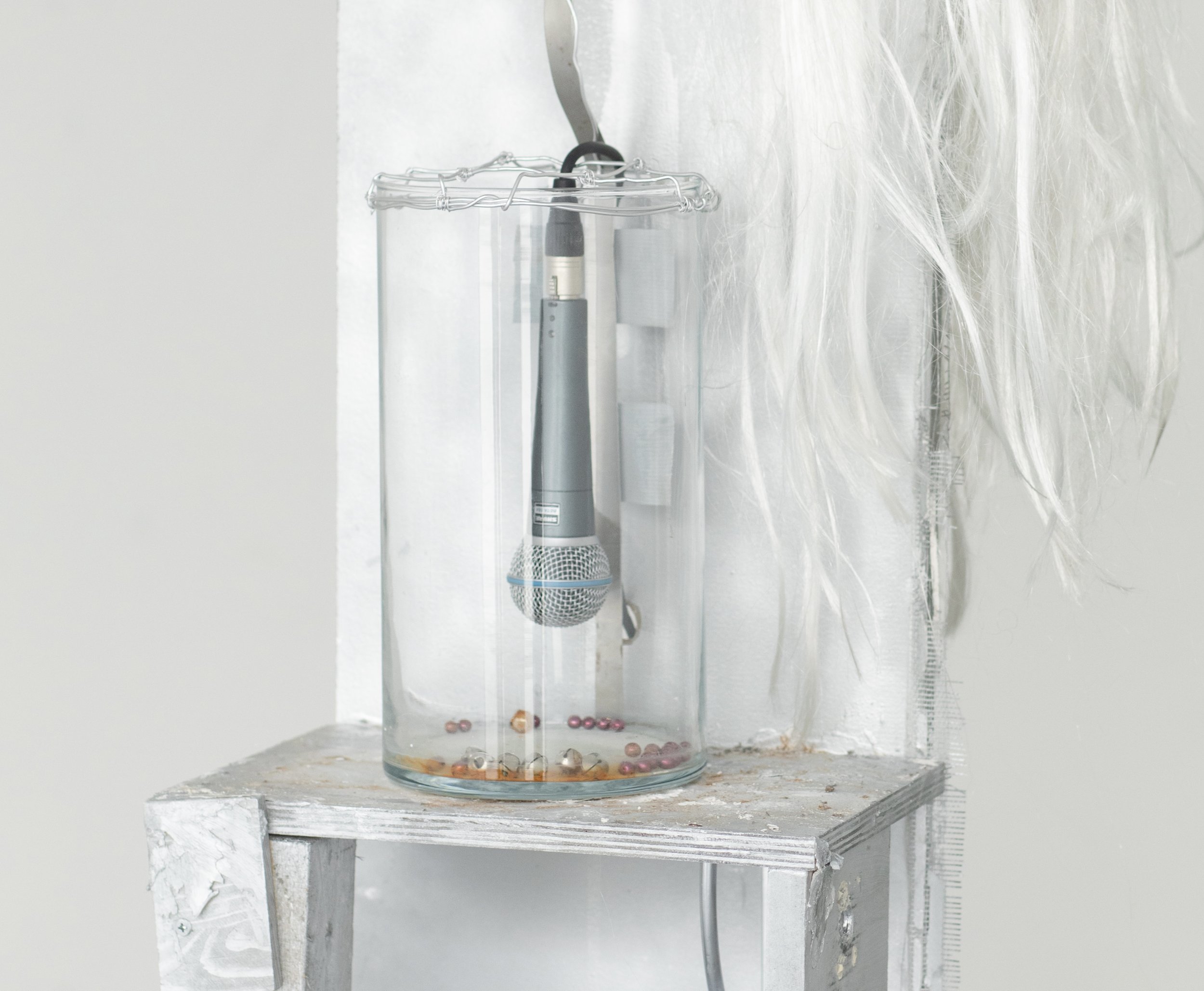

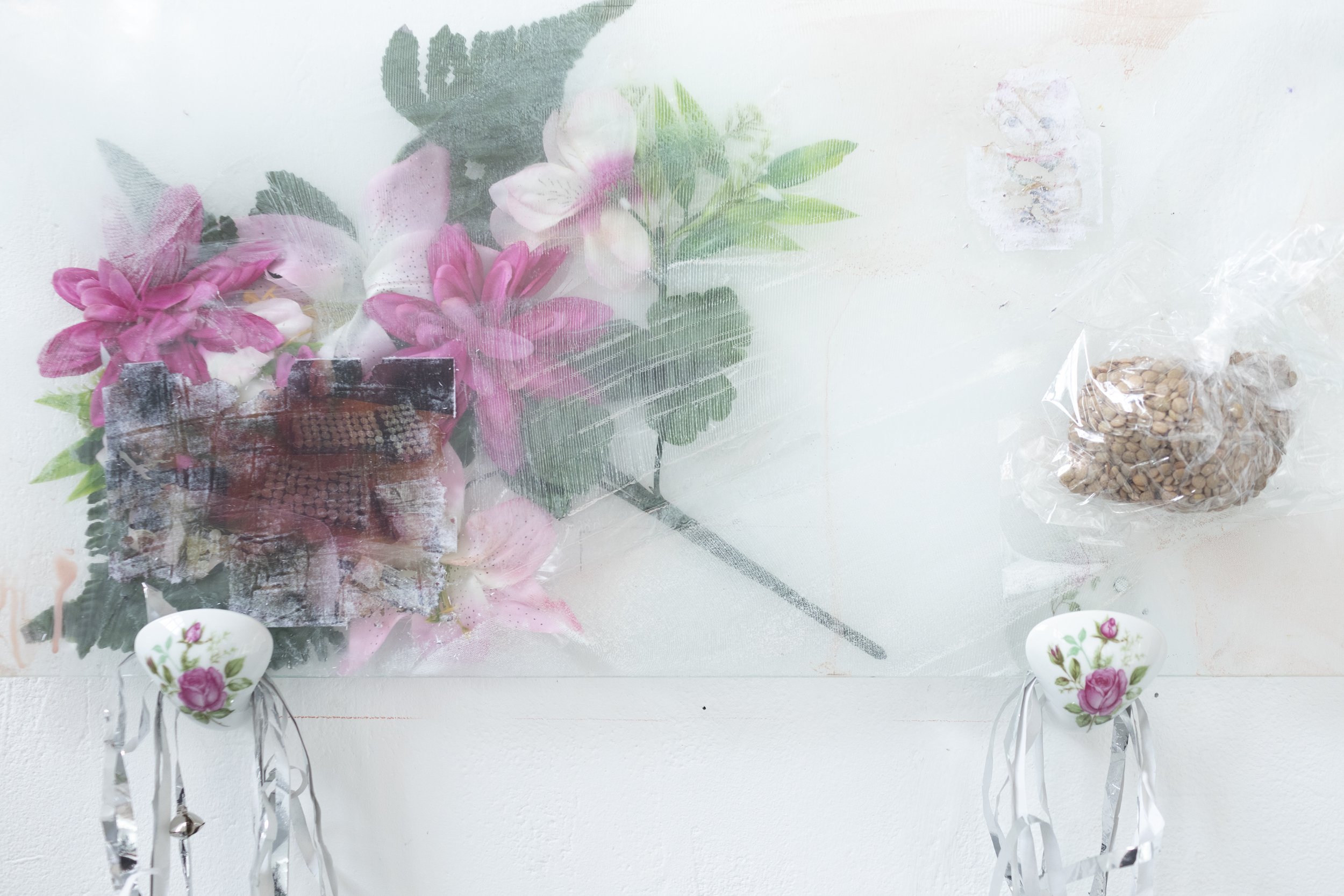
THE INTERVIEW
Micaela Yenobi
1. Could you share a bit about your background and what led you to start your art practice?
Growing up next to my mom, who used to have art-related little jobs, I've had the chance of always being immersed in and exposed to a lot of art in general, so I think that it was kind of natural for me to explore the world through this language. However, as I had the impression that it was kind of impossible to become a “real” artist (specially in the Peruvian context), I started my studies in fashion, then decided to do sociology and graphism, to finally accept that I really wanted to give it a try.
2. What themes does your work explore?
It's kind of scary to define some specific words to talk about my practice (which, a lot of times, I take as a synonym of myself), so I prefer to say that I have different interests by periods, depending on the thoughts that cross my mind the most at the moment. I like to think of my work as a resource that helps me understand the world. For example, when I arrived in France, I got really interested in social interactions and distances, and now I’m in a phase where I explore the intimate and irrational aspects of money. At the moment, I feel like I still have a lot of things to discover and develop on this subject, so I’d like to dive into it and find bridges with other themes to which I am currently sensitive, like migration, religion, party, and love.
Q: What has your work helped you understand about the world?
I enjoy discovering or creating connections between subjects that we don’t typically consider as a whole in everyday life.
Q: Can you share a bit more about the aspects of money that interest you?
For a long time, I saw it as something exasperating, even a bit sad. However, making these emotional connections allowed me to discover an unexpected kind of tenderness.
3. How has your work evolved over the years, and what has influenced those changes?
When I started making art, I used to talk a lot about myself. I guess that it was a necessary phase to go through to then be able to place my thoughts in a context. Now I am much more interested in sociological subjects, the dynamics that exist in the art world itself, and sometimes in formal questions.
Also, as I started my art studies in Lima, I had a much more limited vision of what was art. Moving to France let me expand this conception and discover other ways of practicing it.
Q: Can you tell us more about the formal questions that interest you?
Coming from a painting background, I can't help but compose my installations or music using pictorial concepts such as color, contrast, movement, layers, proportion, perspective, and so on. I find that, at times, when I feel frustrated by ideas and concepts, returning to these fundamental reflections helps me.
4. Where do you find inspiration for your work?
My friends, our conversations, the experiences that I live, my memories, the memories that I make up because I don’t really remember, the stories that I hear, things that I see, that I read, parties, religion, and a lot of music.
5. Can you walk us through your creative process and how you bring an idea to life?
It has changed a lot since I’ve been in Paris. I think that before, I used to conceptualize a lot before starting to work, so I had a clear idea of what I wanted to do and how I was going to do it. Now I'm in a process where I try to be more in touch with my gut, so I just have fun assembling and playing with materials before I sit down to think about it and put big words and concepts on what I do. I think that it's a much more honest and natural process (plus, much more fun!).
Q: What mediums do you work with?
Since I've been in Paris, I’ve been working a lot with objects I find in the streets. This is partly due to my budget and lifestyle, but I also find it interesting to explore the concept of money through trash and industrial materials—things that are byproducts of the fast-paced life we live in big cities. I also work with sound and writing, though I’m still figuring out how to integrate these practices into my main project
6. What is the project you’re most proud of to date?
I guess that the thing that I'm the most proud of is the community around me that I've created through it… but not to be so cliché, I can say that the last pieces that I did about money and beliefs helped me understand a lot of things about myself, my family, and also about my artistic process.
Q: Is this a community you’ve created in Paris?
It’s just the mesh of people from different places who have accompanied me over the years. Many of them I met in Paris. However, it’s important for me to stay connected to what’s happening in Peru and engage with the Latino community here to gain different perspectives on how to navigate and position oneself in the art world of a country with a colonial past. As a foreigner from Latin America, sometimes seen as "exotic," it’s especially crucial to recognize that many of us are quite privileged to even have the opportunity to come here and work, and to be mindful of the kind of discourse we reproduce.
Q: What have you learned from this community?
That art is not necessarily a solitary practice, and it’s always more rewarding to achieve goals when you can bring others along with you.
7. Do you see yourself staying in Paris long-term, or are there other cities that inspire you to work there?
I think that Paris is a great city to work in art. I have already created my home here, and I feel that I'll always have a connection with it. However, I'd love to spend some time in Mexico and of course to do some projects in Peru as well. It would also be interesting to return to Japan one day and be able to have a better understanding of my cultural background.
8. What would you like to accomplish in the next few years?
I really want to find a synergy within my work where I no longer have to ask myself the blocking questions about why I’m doing this. I’d love to see my different practices (music, scenography, etc.) coexist more fluidly. I’ve started working on some projects with friends, and I’d really love to see those grow and evolve over the next few years.
9. If there’s one thing you hope people take away from your work, what would it be?
What I personally appreciate in art is its power to reconnect us with our own sensitivity.
